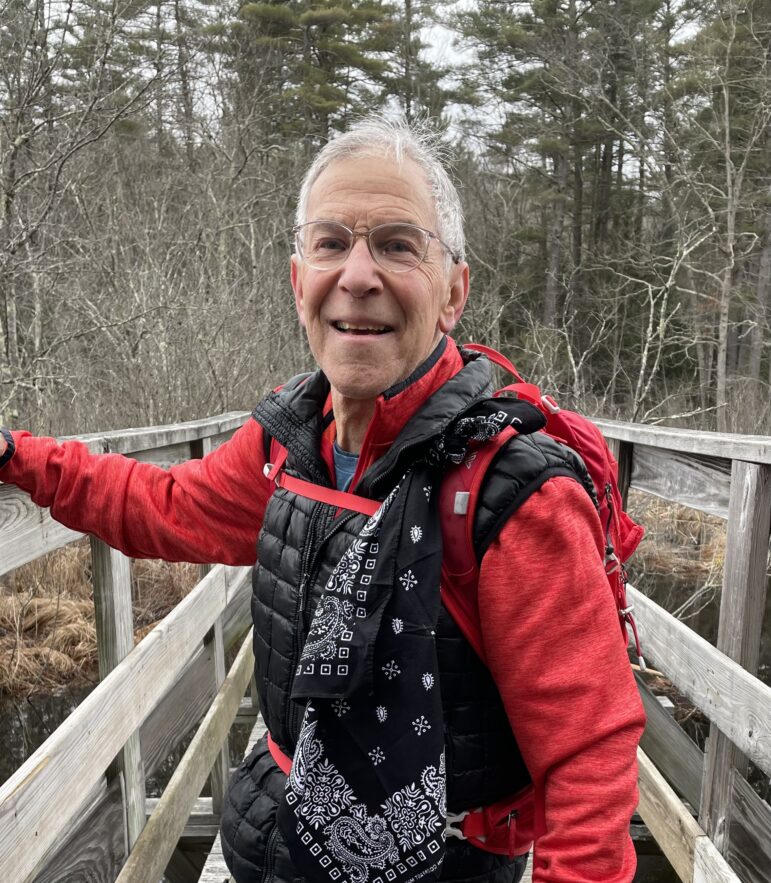Asks court to disallow CBP from conducting border patrol checkpoints for general crime control, as well as the checkpoint in Woodstock, New Hampshire.
CONCORD, N.H. – ACLU affiliates in New Hampshire, Maine, and Vermont today filed a federal lawsuit challenging the use of unconstitutional border patrol checkpoints that frequently occur on I-93 in Woodstock, New Hampshire and elsewhere in northern New England.
During these checkpoints, Border Patrol detains hundreds – if not thousands – of individuals lawfully travelling in northern New England during the summer and fall tourist seasons without any suspicion that they have committed a crime.
The ACLU affiliates, with client Jesse Drewniak, argue these checkpoints – conducted for the primary purpose of general crime control and drug interdiction – are beyond the scope of Border Patrol’s authority. The lawsuit also asks that the court immediately stop Border Patrol from conducting these illegal checkpoints in Woodstock — a small town (population 1,374) in the White Mountains that is approximately 90 driving miles from the Canadian border. Drewniak is also represented by Scott Harris, Steven Dutton, and Jeremy Walker of McLane Middleton, as well as Mark Sisti and Albert “Buzz” Scherr.
“Border Patrol is charged with protecting the border. It is unconstitutional for Border Patrol to use interior checkpoints, nearly 100 miles from the border, as a ruse to unlawfully search and seize people for the purpose of general crime control. Yet this is exactly what Border Patrol is doing with checkpoints in northern New England,” said Gilles Bissonnette, legal director of the ACLU of New Hampshire.
‘These checkpoints are yet another example of Customs and Border Protection acting lawlessly,” said Emma Bond, legal director of the ACLU of Maine. “In the past several months alone, we have seen the federal government deploy CBP agents to monitor protesters in Minneapolis and Washington D.C. after the police murder of George Floyd. Then we saw CBP act as paramilitary forces in Portland, Oregon to crack down on protesters in the area. These checkpoints in northern New England are no different. CBP is using its forces nearly 100 miles from the border for general crime control, which is beyond the scope of CBP’s statutory and constitutional authority.”
“In addition to being unconstitutional, these checkpoints offend basic notions about what it means to live in a free society,” said Lia Ernst, ACLU of Vermont senior staff attorney. “People in this country should not have to answer to armed and unaccountable federal agents while they are going about their daily business. Border Patrol is a rogue agency, but it is not above the law.”
Drewniak, a United States citizen residing in Hudson, New Hampshire, was one of the persons ensnared in an August 2017 checkpoint in Woodstock. He was travelling home from a fly-fishing trip in the White Mountains, where he goes at least 50 times during fishing season to fish, forage, hike, and swim.
“I found the checkpoint to be terrifying and dehumanizing. A Border Patrol agent yelled and swore at me, and I was ultimately detained for about an hour by agents with machine guns,” said Drewniak. “I was simply coming home from a trip to the White Mountains, yet I was ultimately seized – along with hundreds of individuals—without any basis. This is not the America I know. This experience has caused me anxiety and fear when dealing with law enforcement.” A photograph documenting Drewniak’s trip on the day he was detained in this checkpoint is below.
This federal lawsuit follows a major ACLU victory that stemmed from illegal searches and seizures that occurred during the August 2017 checkpoint in Woodstock. In that case, sixteen people who were charged with the violation-level offense of possessing small amounts of drugs for personal use (mostly marijuana) – including Drewniak – challenged the checkpoint’s constitutionality. In May of 2018, the Plymouth Circuit Court concluded that “the primary purpose of the [August 2017 checkpoint] was detection and seizure of drugs,” thereby making the checkpoints “unconstitutional under both State and federal law.” As a result, the Court suppressed all evidence obtained from the checkpoint. The State then dismissed all charges against the 16 individuals in September of 2018.
Court documents and this press release can be found online here: https://www.aclu-nh.org/en/press-releases/aclu-affiliates-new-hampshire-maine-and-vermont-file-lawsuit-challenging-border





